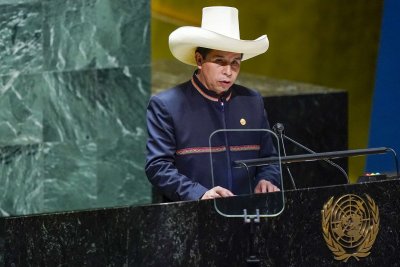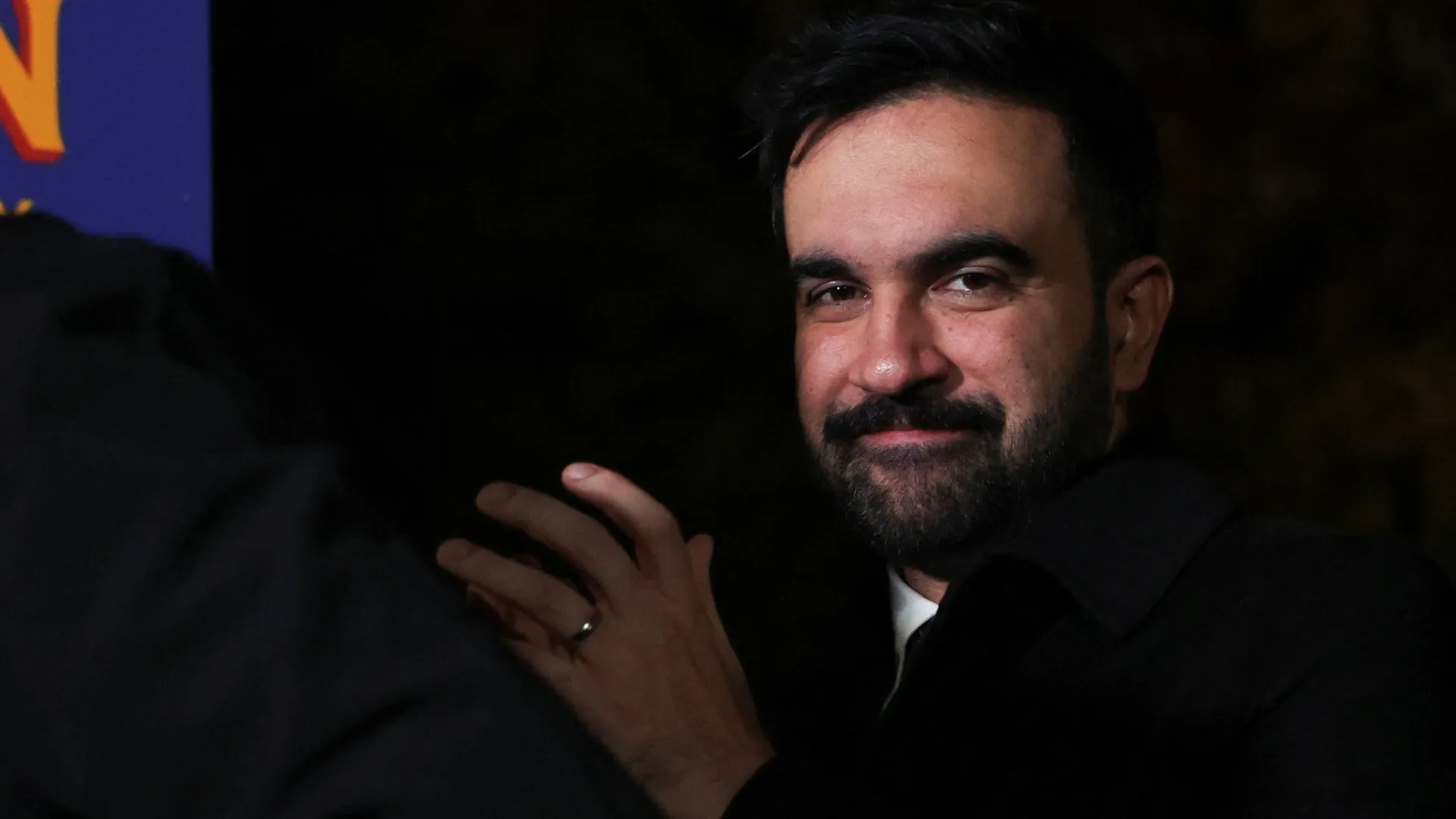Colourful and arty seaside town is perfect for winter breaks and is ‘just like Brighton’
If you’re looking for a picturesque seaside town similar to Brighton but with a quieter, more authentic feel, this ‘gem’ on the Norfolk coast might be your dream destination
When picturing a classic British seaside getaway, Brighton often springs to mind. The vibrant Lanes, buzzing nightlife and that famous, bustling pier draw countless visitors – along with the hefty price tags typical of such popular city breaks.
However, there’s another beach destination offering similar charm but without the hordes of tourists. Cromer, a Victorian treasure on the Norfolk coast, is quietly establishing itself as the ideal, more peaceful alternative.
Like many British seaside resorts, the town enjoyed its heyday just before World War I, though its popularity waned as foreign holidays became more accessible. Cromer possesses a “vibrant Brighton feel” minus the masses, according to travel writer Liz Hollis, who highlights that it is “increasingly home to artists, galleries and independent shops” as it draws a fresh, younger crowd.
Whilst the coastal town prepares for summer with its rainbow-hued buildings overlooking sandy stretches, it remains equally attractive throughout winter, visitors report.
One holidaymaker noted that Cromer beach is “very pretty even in winter”, whilst another remembered their “enjoyable walk on a winter day”.
They said: “You can either walk along the beach with the cliffs above towards Sheringham or in the other direction. In the summer months, it can get too crowded for that relaxing stroll behind the cliffs.”
One visitor praised Cromer as “glorious” in January, fondly recalling “winter walks along the beach, with the waves crashing on the shore”.
The town’s most celebrated attraction is its pier, which boasts the rare distinction of housing one of just five end-of-pier theatres across the UK and the only one staging a complete season of variety performances, reports the Express.
Guests can also try their hand at crabbing from the pier, a beloved seaside tradition, or explore the RNLI lifeboat station at its furthest point, paying tribute to the town’s rich maritime legacy and its most decorated lifeboatman, Henry Blogg. Those keen to delve deeper into this history should visit the Henry Blogg Museum.
Away from the pier, Cromer has plenty more to offer. The town is a haven for food enthusiasts, renowned for its sweet and succulent Cromer crab, hauled from local waters around a chalk reef lying just offshore.
Cromer’s characterful streets also feature an impressive selection of independent boutiques, coffee shops, and art galleries, perfect for some relaxed browsing.
Travel writers at ‘Our World for You’ described Cromer in their Norfolk guide as a “gem of the Norfolk coast” and “so much more than just Cromer crabs.”
For a blend of heritage and breathtaking scenery, scale the 160-foot tower of the 14th-century church of St Peter and St Paul, Norfolk’s tallest, which provides sweeping views across the town and shoreline. A brisk stroll along the Norfolk Coast Path, which meanders through Cromer, is an ideal way to soak up the area’s natural splendour in October or November, with the crisp air and dramatic skies.
The town also gets into the festive spirit with a traditional Christmas Fayre at the Parish Hall, offering local gifts and yuletide goodies.
For a truly spectacular festive experience, the renowned Cromer Pier Christmas Show runs from mid-November to late December, bringing West End-calibre variety entertainment to the coast and making it a perfect destination for a pre-Christmas or even post-Christmas getaway.
Visitors can enjoy the show, which lasts roughly two and a half hours. This year, the event takes place from November 15 to December 28.
High school girls’ tennis: City Section playoff results
CITY SECTION PLAYOFFS
MONDAY’S RESULTS
Semifinals
DIVISION I
#5 GALA 21.5, #1 LA Marshall 8
#3 North Hollywood 15.5, #2 Chatsworth 14
DIVISION II
#1 Granada Hills Kennedy 17.5, #4 Bell 10
#2 Carson 20.5, Gardena 9
Note: Division II Finals Nov. 5 at 11 a.m. at Balboa Sports Center; Division I Finals Nov. 6 at 11 a.m. at Balboa Sports Center.
Peru severs relations with Mexico for granting asylum to ex-PM

Nov. 4 (UPI) — Peru is severing diplomatic relations with Mexico over its granting of diplomatic asylum to a former prime minister accused of being involved in a coup attempt in 2022.
The Peruvian Foreign Ministry announced it was ending diplomatic relations with Mexico in a Monday evening communication, accusing the North American nation of “interfering in an inadmissible and systematic manner in Peru’s internal affairs.”
According to the communication, Mexico informed Peru that former Prime Minister Betssy Chavez Chino had sought refuge at its embassy in Lima and was granted political asylum.
Peru’s Foreign Ministry said it was “an unfriendly act that adds to the series of unacceptable interferences by the Mexican government toward Peru” and demonstrates its “profound lack of interest in maintaining a relationship” with Lima.
“Consequently, the government of the Republic of Peru has decided to break diplomatic relations with the United Mexican States,” it said.
Chavez was prime minister under President Pedro Castillo, who was impeached after trying to dissolve Congress and impose an emergency government to rule by decree in December 2022. He has been held in preventive detention since then on corruption and rebellion-related charges.
The former prime minister had been jailed from June 2023 over her alleged role in the coup until September, when she was released by a judge who ruled her right “not to suffer arbitrary detentions” had been violated.
Mexico’s Foreign Ministry said Peru’s decision to sever diplomatic relations was “excessive and disproportionate.”
In defense of granting Chavez asylum, Mexico said it did so in adherence to international law, in particular the 1954 Convention on Diplomatic Asylum, which both countries are party to.
“Mrs. Chavez Chino has mentioned that she has been the subject of repeated violations of her human rights as part of a political persecution of the Peruvian state since the moment of her capture in 2023,” the ministry said in a statement.
Mexico said its decision followed a “thorough evaluation and in strict compliance with the procedure established for this purpose in the Law on Refugees, Complementary Protection and Political Asylum” as well as in accordance with Mexican law.
“Mexico reaffirms, as has been recognized by the General Assembly of the United Nations, that the granting of asylum cannot be considered an unfriendly act by another state.”
Video: Typhoon floods wash away cars and shipping containers in Philippines | Floods
Cars and shipping containers were washed away by floods caused by Typhoon Kalmaegi in the Philippines, where thousands of people have been ordered to evacuate their homes.
Published On 4 Nov 2025
Louise Redknapp flashes bra in a see-through top as Kelly Brook stuns in plunging dress at awards show
SINGER Louise Redknapp looked sensational as she stunned on the red carpet of a glitzy awards ceremony.
The former Eternal member was one of the many stars who enjoyed a night out at the extravagant Music Industry Trust Awards.
Louise commanded attention as she flashed her bra under a sheer see-through shirt.
She paired it with a maroon ruched skirt and accessorised with a large black clutch bag.
The glitzy do was hosted in partnership with YouTube and Global and saw a raft of celebrities step out for the event at the Grosvenor House Hotel.
Kelly Brook, who is set to star in this year’s I’m A Celebrity, also looked fantastic as she made a statement on the red carpet.
The glam model looked phenomenal as she wore a loose-fitting leopard print dress.
The outfit fell to her feet but left her toes exposed with Kelly choosing to wear open-toe heels for her evening out.
Kelly’s hair and make-up looked flawless as she proudly posed away for cameras at the event.
Popstar Rita Ora was another guest of honour and even took to the stage for an exclusive performance at the shindig.
The Hot Right Now singer opted for an all-pink ensemble.
Rita looked as glam as ever in a hot pink sequined mini dress that she teamed with an equally bright pair of skintight leggings.
She added an oversized pink fluffy fur coat to the look as well as showing off her hair transformation after opting for a brand new fringe.
Rita wasn’t the only performer to hit the stage with Price Tag hitmaker Jessie J also wowing audiences with a stellar performance.
It is one of Jessie’s first gigs since undergoing surgery for breast cancer treatment and having to postpone her scheduled tour owing to medical appointments related to her cancer battle.
Jessie equally looked just as glam as her fellow ladies as she wowed in a figure-hugging white dress which featured a sheer skirt with a translucent detail.
Kate Garraway, Emma Bunton and Olly Murs were also all in attendance for the star-studded night out.
Champions League quiz: Can you name the all-time appearance makers?
After you smashed our Champions League top scorers quiz, we thought we’d mark the return of Europe’s premier club competition by testing you on appearances.
For this week’s big Tuesday quiz we want you to name every player who has played in at least 100 Champions League matches.
How many can you get? Good luck!
Mamdani promises to stand up to ‘bullies’ after Trump funding threat | Elections
At his final rally on Monday New York mayoral candidate Zohran Mamdani vowed to resist US President Donald Trump’s threat to withhold federal funds if the 34-year-old wins, framing the vote as a stand against intimidation and political bullying.
Published On 4 Nov 2025
NYC mayoral election and other things to watch in US elections
 EPA/Shutterstock
EPA/ShutterstockIt’s Election Day in the US.
This so-called “off year” election doesn’t feature presidential or congressional races, but there are still several critical votes to watch tonight.
New York City will choose its next mayor, in a battle that has pitted a younger, progressive Democrat against a member of the party’s old guard. The states of Virginia and New Jersey will elect new governors, and the outcome of these contests could be bellwethers for next year’s congressional midterm elections.
Californians also will decide whether to redraw their US House district maps in a rare mid-decade redistricting, as Democrats try to counter Republicans’ efforts to give their party an advantage in next year’s midterm elections.
Here’s what you need to know.
New York City mayoral race
All eyes will be on the Big Apple as Zohran Mamdani, a 34-year-old state assemblyman, attempts a political upset in his bid to become New York City’s youngest mayor in over a century.
Mamdani, a democratic socialist, shocked the political establishment when he bested former governor Andrew Cuomo in the Democratic primary this summer. Cuomo, undeterred, has continued to campaign as an independent. Meanwhile, Republican Curtis Sliwa has resisted pressure to drop out of the race to clear a path for Cuomo.
If Mamdani wins, he will become the city’s first Muslim mayor. Democrats around the country will be watching to see if his laser-focus on cost-of-living issues like rent, groceries and wages could serve as effective messaging in future races.
Though Mamdani heads into election night with a suggested polling lead, the gap between him and Cuomo has narrowed. In the final stretch of the campaign, Cuomo has hammered Mamdani on crime and public safety, and said the young politician lacks the experience to lead America’s biggest city.
California redistricting
California’s Democratic leadership is asking voters for permission to redraw the state’s congressional districts in the middle of the decade. That’s unusual in California, which by law relies on a nonpartisan committee to draw its congressional maps once every decade, based on census data.
However, as Republican-led states like Texas and Missouri seek to hastily redraw their congressional maps to give their party an advantage in the 2026 midterm elections, California Governor Gavin Newsom wants to counter the losses with redistricting in his own state.
California’s Proposition 50 would allow the temporary use of new congressional district maps through 2030. The campaign has drawn $158 million in donations, according to the Los Angeles Times, with Democratic proponents vastly outraising the Republican opposition effort.
Republicans in California, who hold only nine of the state’s 52 US House seats, staunchly oppose the plan.
A University of California Berkeley/IGS Poll suggests 60% of likely California voters support Proposition 50, while 38% oppose it. The breakdown was highly partisan, with 93% of Democrats saying they would choose “yes” and 91% of Republicans choosing “no.”
New Jersey governor’s race
New Jersey is considered a blue state, but polls indicate a close race between Democrat Mikie Sherrill and Republican Jack Ciattarelli. It’s one of the two governor’s races this year that could indicate how Americans feel about the current political climate.
Sherrill currently represents New Jersey’s 11th District in Congress, and Ciattarelli is a former state assemblyman.
New Jersey is considered a Democratic-leaning state, but has had Republican governors. The last one, Chris Christie, served two terms between 2010 and 2018.
Rhetoric in the race has been heated. Ciattarelli and his supporters have run political advertisements featuring clips of Sherrill giving halting answers in interviews about her policies.
It also has drawn the attention of nationally known names from both parties. Democratic stars like former president Barack Obama and former transportation secretary Pete Buttigieg have campaigned with Sherrill. President Donald Trump attended a virtual rally for Ciattarelli, and conservative activist Jack Posobiec has backed him.
Virginia governor’s race
Virginia’s leadership usually swings between Democrats and Republicans, meaning the outcome of this year’s gubernatorial election might serve as a bellwether for the electorate’s mood.
No matter which candidate succeeds, the state will elect its first female governor this year. Voters will choose between Democrat Abigail Spanberger, a US congresswoman, and Republican Winsome Earle-Sears, the state’s current lieutenant governor.
If Earle-Sears wins, she will become the first black woman elected to lead a US state in the nation’s history.
Virginia is bordered by the liberal-leaning Washington, DC to the north where many residents work in the nation’s capitol or for the federal government. But the state also has deep pockets of conservative voters throughout its rural districts, and swing voters.
Spanberger has highlighted the economic impact of Trump’s cuts to the federal government, which have impacted Virginia’s employment. Earle-Sears has touted Virginia’s economy under Republican leadership. But she also has leaned into cultural topics like transgender issues, which Republicans used successfully as a wedge issue in last year’s presidential election.
The Donald Trump factor
Though he’s not on the ballot, Trump’s name looms over this election.
The New York City mayor’s race is how the next leader of the city will deal with the Trump administration, which has meddled in the city’s politics. Cuomo is pitching his experience as governor dealing with the first administration as a reason for voters to choose him.
The president has implied that he will penalize the city if voters choose Mamdani.
“It’s gonna be hard for me as the president to give a lot of money to New York, because if you have a communist running New York, all you’re doing is wasting the money you’re sending there,” Trump said in a 60 Minutes interview that aired Sunday. (Mamdani is not a communist.)
Trump kicked off the redistricting battle that led California to put Proposition 50 on the ballot, and has endorsed Ciattarelli in the New Jersey governor’s race.
Carly Rae Jepsen is pregnant, expecting first baby with Cole M.G.N.
It isn’t crazy: Carly Rae Jepsen is expecting her first child with husband Cole M.G.N.
The Canadian singer-songwriter announced her pregnancy Monday in an Instagram post, sharing a few black-and-white photos of the couple and Jepsen’s baby bump that hint there may be some kicking going on.
“Oh hi baby,” Jepsen, 39, wrote in the caption along with a heart emoji. Her 40-year-old husband, whose full name is Cole Marsden Greif-Neill, is feeling so much love and excitement that he has been rendered speechless, if the multiple heart-eyes emojis are any indication.
According to the couple’s wedding spread in Vogue, Jepsen and the Grammy Award-winning producer tied the knot in October, and the couple had been trying to get pregnant while planning their New York wedding. The musicians first met as colleagues in 2021 and started dating in 2022 before getting getting engaged in September of last year.
In 2023, Jepsen told People that their first collaboration, the song “So Right” from her album “The Loveliest Time,” was in essence the couple’s “meet-cute.”
“This is our first little baby out in the world,” Jepsen told the outlet at the time. “I think you’ll see a lot more of our collaboration together for future projects.”
Known for her earworm 2012 hit “Call Me Maybe,” Jepsen most recently celebrated the 10th anniversary of the release of “Emotion” with a sold-out show at the Troubadour, where she performed the entirety of the 2015 album.
“‘Emotion’ was like an introduction to my authentic version of what pop music was,” Jepsen said of the LP in 2020. “I was itching to share something different, because I knew that ‘Call Me Maybe’ wasn’t the only color of what I had to offer.”
Familiar face Norman Powell helps Heat beat the Clippers
Bam Adebayo had 25 points and 10 rebounds, Norman Powell added 21 points in his return to Southern California and the Miami Heat held off the Clippers 120-119 on Monday night.
Powell was a key member of the Clippers for three seasons before being traded to the Heat before this season.
Andrew Wiggins scored 17 points and Kel’el Ware added 16 to help the Heat end a two-game losing streak and win on the road for the second time in five games. Miami is 1-2 to open a four-game trip.
James Harden scored 29 points and Kawhi Leonard added 27 as the Clippers lost at home for the first time in four games this season.
Ivica Zubac had nine points and 12 rebounds for the Clippers. Derrick Jones Jr., Bradley Beal and John Collins each scored 12 points.
The Heat shot 54.2% from the field and made 12 of their 25 three-point attempts to 50% for the Clippers, who were 17 of 41 from long range. The Clippers had 21 turnovers that the Heat turned into 37 points.
Miami led 120-116 after two free throws from Adebayo with 56 seconds remaining. Adebayo missed a shot inside with 26 seconds left and Harden made a three-pointer on the other end with 20 seconds left to pull the Clippers within a point.
The Clippers had a chance to win it, but Leonard missed a 26-foot step-back three-pointer at the buzzer.
The Clippers trailed by as many as 13 points in the third quarter before getting even 105-105 with 9:55 remaining on a three-pointer from veteran Chris Paul.
Man arrested over online posts calling for Trump’s execution

Nov. 4 (UPI) — Federal prosecutors have charged a suburban Chicago man with a history of making threats online for allegedly calling for the execution of President Donald Trump.
Trent Schneider, 57, of Winthrop Harbor, Ill., was arrested Monday morning and was to make his initial court appearance before U.S. Magistrate Judge Jeffrey Gilbert in Chicago that afternoon, the Justice Department said in a statement.
The criminal complaint, filed Friday, states the alleged threats were made against the president in posts to the Instagram account truthreaper888, which prosecutors allege was run by Schneider.
According to the court document, Schneider allegedly made threats in an expletive-laden video posted, stating that he was going to “get some guns” and “take care of business myself.”
“I’m tired of all you [expletive] frauds. People need to [expletive] die and people are going to die. [Expletive] all of you, especially you Trump. You should be executed.”
The video was posted to the account 18 times between Oct. 16 and Oct. 21.
Prosecutors also allege that between Sept. 26 and Oct. 21, an illustration of Trump behind a prohibition sign was published to the account 20 times. The picture was accompanied by the caption: “THIS IS NOT A THREAT!!! AFTER LOSING EVERYTHING and My House Auction is 11.04.2025”
“Donald Trump SHOULD BE EXECUTED!!! She cares NOTHING ABOUT YOU or ME!!!”
A concerned citizen in Florida had tipped off authorities to the post after seeing it online, according to the complaint.
The court document states that Schneider is in a pending foreclosure action, with a foreclosure auction scheduled for Monday.
This is not the first time that Schneider has been investigated over online comments.
In 2022, he allegedly posted multiple violent messages about public officials on various social media accounts, and was arrested that December after allegedly making threats to “shoot up” a T-Mobile store.
In March 2023, he was found unfit to stand trial on the related charges.
Trump is a survivor of an assassination attempt on July 13, 2024, when a bullet fired from a would-be assassin grazed his ear while he was campaigning in Pennsylvania as the Republican nominee for president.
Is Mohammad Bin Salman a Zionist? – Middle East Monitor
Last week, a prominent Saudi Sheikh, Mohammed Al-Issa, visited the Auschwitz concentration camp in Poland to commemorate the 75th anniversary of its liberation, which signalled the end of the Nazi Holocaust. Although dozens of Muslim scholars have visited the site, where about one million Jews were killed during World War Two, according to the Auschwitz Memorial Centre’s press office, Al-Issa is the most senior Muslim religious leader to do so.
Visiting Auschwitz is not a problem for a Muslim; Islam orders Muslims to reject unjustified killing of any human being, no matter what their faith is. Al-Issa is a senior ally of Saudi Crown Prince Mohammad bin Salman (MBS), who apparently cares little for the sanctity of human life, though, and the visit to Auschwitz has very definite political connotations beyond any Islamic context.
By sending Al-Issa to the camp, Bin Salman wanted to show his support for Israel, which exploits the Holocaust for geopolitical colonial purposes. “The Israeli government decided that it alone was permitted to mark the 75th anniversary of the Allied liberation of Auschwitz [in modern day Poland] in 1945,” wrote journalist Richard Silverstein recently when he commented on the gathering of world leaders in Jerusalem for Benjamin Netanyahu’s Holocaust event.
READ: Next up, a Saudi embassy in Jerusalem
Bin Salman uses Al Issa for such purposes, as if to demonstrate his own Zionist credentials. For example, the head of the Makkah-based Muslim World League is leading rapprochement efforts with Evangelical Christians who are, in the US at least, firm Zionists in their backing for the state of Israel. Al-Issa has called for a Muslim-Christian-Jewish interfaith delegation to travel to Jerusalem in what would, in effect, be a Zionist troika.
Zionism is not a religion, and there are many non-Jewish Zionists who desire or support the establishment of a Jewish state in occupied Palestine. The definition of Zionism does not mention the religion of its supporters, and Israeli writer Sheri Oz, is just one author who insists that non-Jews can be Zionists.
Mohammad Bin Salman and Netanyahu – Cartoon [Tasnimnews.com/Wikipedia]
We should not be shocked, therefore, to see a Zionist Muslim leader in these trying times. It is reasonable to say that Bin Salman’s grandfather and father were Zionists, as close friends of Zionist leaders. Logic suggests that Bin Salman comes from a Zionist dynasty.
This has been evident from his close relationship with Zionists and positive approaches to the Israeli occupation and establishment of a Jewish state in Palestine, calling it “[the Jews’] ancestral homeland”. This means that he has no issue with the ethnic cleansing of almost 800,000 Palestinians in 1948, during which thousands were killed and their homes demolished in order to establish the Zionist state of Israel.
“The ‘Jewish state’ claim is how Zionism has tried to mask its intrinsic Apartheid, under the veil of a supposed ‘self-determination of the Jewish people’,” wrote Israeli blogger Jonathan Ofir in Mondoweiss in 2018, “and for the Palestinians it has meant their dispossession.”
As the de facto ruler of Saudi Arabia, Crown Prince Bin Salman has imprisoned dozens of Palestinians, including representatives of Hamas. In doing so he is serving Israel’s interests. Moreover, he has blamed the Palestinians for not making peace with the occupation state. Bin Salman “excoriated the Palestinians for missing key opportunities,” wrote Danial Benjamin in Moment magazine. He pointed out that the prince’s father, King Salman, has played the role of counterweight by saying that Saudi Arabia “permanently stands by Palestine and its people’s right to an independent state with occupied East Jerusalem as its capital.”
UN expert: Saudi crown prince behind hack on Amazon CEO
Israeli journalist Barak Ravid of Israel’s Channel 13 News reported Bin Salman as saying: “In the last several decades the Palestinian leadership has missed one opportunity after the other and rejected all the peace proposals it was given. It is about time the Palestinians take the proposals and agree to come to the negotiations table or shut up and stop complaining.” This is reminiscent of the words of the late Israeli Foreign Minister Abba Eban, one of the Zionist founders of Israel, that the Palestinians “never miss an opportunity to miss an opportunity.”
Bin Salman’s Zionism is also very clear in his bold support for US President Donald Trump’s deal of the century, which achieves Zionist goals in Palestine at the expense of Palestinian rights. He participated in the Bahrain conference, the forum where the economic side of the US deal was announced, where he gave “cover to several other Arab countries to attend the event and infuriated the Palestinians.”
US President Donald Trump looks over at Crown Prince of Saudi Arabia Mohammad bin Salman al-Saud as they line up for the family photo during the opening day of Argentina G20 Leaders’ Summit 2018 at Costa Salguero on 30 November 2018 in Buenos Aires, Argentina [Daniel Jayo/Getty Images]
While discussing the issue of the current Saudi support for Israeli policies and practices in Palestine with a credible Palestinian official last week, he told me that the Palestinians had contacted the Brazilian President Jair Bolsonaro to ask him not to relocate his country’s embassy to Jerusalem. “The Saudis have been putting pressure on us in order to relocate our embassy to Jerusalem,” replied the Brazilian leader. What more evidence of Mohammad Bin Salman’s Zionism do we need?
The founder of Friends of Zion Museum is American Evangelical Christian Mike Evans. He said, after visiting a number of the Gulf States, that, “The leaders [there] are more pro-Israel than a lot of Jews.” This was a specific reference to Saudi Arabia’s Crown Prince, and his counterpart in the UAE, Mohammed Bin Zayed.
“All versions of Zionism lead to the same reactionary end of unbridled expansionism and continued settler colonial genocide of [the] Palestinian people,” Israeli-American writer and photographer Yoav Litvin wrote for Al Jazeera. We may well see an Israeli Embassy opened in Riyadh in the near future, and a Saudi Embassy in Tel Aviv or, more likely, Jerusalem. Is Mohammad Bin Salman a Zionist? There’s no doubt about it.
The views expressed in this article belong to the author and do not necessarily reflect the editorial policy of Middle East Monitor.
‘The Irish landscape whispers tales of the past’: a trip beyond the blarney in far-flung Donegal | Ireland holidays
Earlier this year, a trailer for a film called Dear Erin appeared in cinemas featuring bloody-knuckled, flat-capped “Paddy” penning a letter on a table strewn with empty porter and whiskey glasses to Erin, his long-lost American flame. Much online brouhaha and frustration ensued at yet another Hollywood misrepresentation of modern day Ireland. The trailer was eventually revealed to be an elaborate ruse by Epic, the Irish Emigration Museum in Dublin, to call out the tired stereotypes and “to find out who the Irish really are”.
Ireland, and the Irish, are many things. The country’s economic and social structures have changed rapidly in recent decades but that doesn’t necessarily mean the culture has altered unrecognisably. What has changed is the increasing draw to connect with Ireland’s natural landscapes. Writers such as the late Tim Robinson, Manchán Magan and the popular podcaster Blindboyboatclub have been pivotal in mining the connection between the natural world and the country’s past. The Irish language has seen a renaissance in the past few years for the same reason. In his 2020 bestselling book Thirty-Two Words for Field, Magan writes: “Irish has a rich store of words that offers a more soulful and nature-connected way of seeing the world. It lets you live more deeply in your environment.”
To test Magan’s hypothesis, I travelled with my family to the Fanad peninsula in the Gaeltacht (Irish speaking) area of County Donegal this summer. The bilingual road sign that welcomed us to Fanad/Fánaid immediately delivered a geographical context, fána being the Irish word for sloping ground. Knockalla mountain (Cnoc Colbha – the hill of the edge) loomed to the east, calling to mind images of the ice sheets that carved the ridge along the twin peaks about 14,000 years ago.
The ice age also had an impact on Fanad’s coast. The rocks that still line the foreshores of its pristine beaches were left behind by retreating glaciers and pounded ever since by the North Atlantic to make sand. We sought out one of those white beaches at Ballyhiernan Bay (Bá Bhaile Uí Thiarnáin – the townland of Tiarnán). My phone offered no details of shadowy Tiarnán’s biography, but I wanted to find out more about why a whole bay was named after him – Robinson was right: “place names tell stories”. We were alone on the beach, our only company the swallows that surfed the air currents above the crashing waves. My 16-year-old son and I had spent the past year attending “pop-up Gaeltachts” in Dublin pubs in preparation for his stint working at an Irish college, a rite of passage for Irish teenagers, yet the Irish word for swallow eluded him. It is fáinleog, probably from fán meaning to wander or to leave, perfectly capturing the penchant of these summer visitors for travelling to Africa in the winter.
The process of anglicising Irish place names began in the early 19th century, following the 1800 Act of Union, with towns being renamed as part of the Ordnance Survey of Ireland, which began in 1824. This act of cultural erasure was soon followed by the great famine, from 1845 to 1852, which decimated the Irish-speaking population. In 1980, decades before the recent resurgence of interest in Ireland’s linguistic past, the Donegal playwright Brian Friel mined this pivotal era for his 1833-set opus Translations. The play’s erudite schoolmaster Hugh, who refers to Irish as “a syntax opulent with tomorrows”, might have smiled warmly at the idea of musicians such as CMAT, Fontaines DC and Kneecap releasing songs in the language nearly two centuries later.
Settling in for our stay at a cottage within the grounds of Fanad lighthouse, the view from our sitting room looked west to the towering cliffs of Tory Island (Toraigh – place of steep rocky heights), another far-flung corner where the native language maintains a grip, and famous for having a king until 2018. Ascending the vertiginous steps to the lantern room afforded us an even better view, with Malin Head (Cionn Mhálanna – high headland), Ireland’s most northerly tip, clearly visible across Lough Swilly (Loch Súilí – lake of eyes or shadows). The enormous expanse of sea to the north created a sense of the earth’s curvature, and Scotland and Iceland seemed almost within reach, somewhere in the distance.
The next morning, while kayaking under the nearby cliffs and blowholes with knowledgable local guide Hugh Hunter, oystercatchers dived overhead, calling out angrily as we paddled by their nesting grounds. These black and white seabirds with orange, chisel-like beaks migrate here from the neighbouring Nordic countries every autumn. My son is none the wiser about the Irish for oystercatcher: Roilleach an Giolla Brighde, meaning the servant of Saint Brigid. The story goes that Ireland’s patroness saint was hidden from an angry mob by a flock of oystercatchers who covered her in seaweed.
That afternoon, we joined the throng in the Lighthouse Tavern to watch the All-Ireland football final between Donegal and Kerry. There was a loud cheer in a mixture of Irish and English each time the home team scored. At half-time we joined a group of local teenagers as they discussed their impending university courses in Dublin. I wondered how their lives would change and who among them might come back, like the swallows and oystercatchers, to this far-flung peninsula.
Later in the week, stopping for directions to Port Na Ling (harbour of the ships) beach, a local man engaged us in conversation, explaining he hadn’t spoken a word of English until he went to secondary school. He pointed out the house where he grew up with 11 siblings, among a constellation of white-washed bungalows on the hillside the other side of Mulroy Bay (An Mhaoil Rua – meaning the bare hill). Ireland’s pre-famine, largely rural population, peaked at about 8.2 million and a sense of how the country’s built environment looked back then is somehow still tangible in many coastal Donegal communities. Gweedore (Gaoth Dobhair – estuary of water), an hour away to the west, is described as one of Europe’s most densely populated rural areas. In the aftermath of the famine, people in Donegal largely survived by travelling to Scotland as potato pickers, and this seasonal work allowed the county’s population to remain relatively buoyant, with locals returning home in the winter months rather than emigrating permanently.
We finished our time in Fanad by following the Way of the Cross up Knockalla to an outdoor altar with three crosses looking out across the peninsula. Blindboyboatclub explains that “the Irish landscape itself acts as a storyteller, whispers tales of the past”. The pathway we had just ascended has been a place of spiritual significance for millennia, long before being co-opted by Christianity. The many standing stones and ancient sites strewn across the fields are signifiers of a secret history. We were the only people to climb the mountain that morning, and what a privilege to have this sacred site to ourselves.
Our time in Fanad had been a portal to viewing the landscape afresh. Magan was right: the Irish language is an extraordinary conduit to the past and offers us a better understanding of the present.
Two-night stays at Fanad lighthouse from €350. Kayak trips with Eco Atlantic Adventures from €35pp. Further information: tourismireland.com
John Lewis Christmas Advert LIVE: Viewers await festive advert but already aren't happy

The John Lewis Christmas advert 2025 edition is dropping today as the retail giant launches a new campaign, telling shoppers ‘If you can’t find the words, find the gift’
Source link
Liverpool v Real Madrid: Will Trent Alexander-Arnold show what Reds are missing on return?
Warnock said: “There is a great player in Conor Bradley, but he needs to stay fit and get a run of games to build up a relationship with Salah. These things can take time, even with the best players.
“Trent leaving has had an impact on Salah. Their partnership, if not exactly unnoticed, was almost taken as read. Yes, they are world-class individuals, but it was also a partnership.
“They really complemented each other. Trent could go inside, draw people towards him, which freed up more space for Salah. And when Salah drove at people he had the ability to feed Trent because teams were backing off.”
Alexander-Arnold’s comfort in possession with his fellow defenders, plus the ability to move into midfield, means his presence is also sorely missed elsewhere.
Warnock said: “I think Ibrahima Konate probably misses him as well. He knew he could give Trent the ball under pressure. I think it is having an impact on the right-hand side of the pitch, both in defence and attack.
“Liverpool also created a box system in the centre of midfield, which they did so well, when Trent was in the side.
“There was a lot of praise given to Alexis Mac Allister, Ryan Gravenberch and Dominik Szoboszlai, but Trent was a big part of that as well. Losing that extra body in the midfield area, when he was in there, is also missed because opponents were drawn to him, fearful of what he could create.”
Jeremie Frimpong, signed in a £29m deal from Bayer Leverkusen to compete with Bradley for the place vacated by Alexander-Arnold, has had his Anfield start curtailed by hamstring injuries.
Warnock said: “The biggest issue with Frimpong is not only injuries, but what is his best position? At Bayer Leverkusen he spent a lot of time as a right wing-back.”
Starbucks sells majority stake in China business as it eyes expansion | Business and Economy News
Starbucks has announced it will sell the majority stake in its Chinese business for $4bn to a Hong Kong-based private equity firm after years of losing market share to local competitors in China.
Starbucks announced the sale on Monday, which will see the firm Boyu Capital take a 60 percent stake in its Chinese retail operations through a joint venture.
Recommended Stories
list of 4 itemsend of list
Boyu Capital has offices in Shanghai, Beijing and Singapore, and its cofounders include Alvin Jiang, the grandson of former Chinese President Jiang Zemin, according to the Reuters news agency.
The US coffee giant will retain a 40 percent interest in its China operations while maintaining its ownership of the company’s brand and intellectual property, the company said.
The deal marks a “new chapter” in Starbucks’s 26-year-long history in China, the company said in a statement.
It will also give Starbucks a much-needed injection of funding and logistical support as it tries to expand its business deeper into China, according to Jason Yu, the Shanghai-based managing director of CTR Market Research.
Starbucks has 8,000 locations across China, but it aspires to open as many as 20,000 through its joint venture, the company said in a statement.
“Starbucks used to be a pioneer in coffee in China, where it was probably the first coffee chain in many cities, but this is no longer the case as the local competition already outpaced Starbucks in their expansion,” Yu told Al Jazeera.
Top competitors include homegrown Luckin Coffee, which has more than 26,000 locations worldwide, mostly in China.
Starbucks has historically been concentrated in first- and second-tier cities like Shanghai, Beijing and Shenzhen while Luckin has expanded into much smaller cities.
Luckin has also built a reputation around offering customers much cheaper drinks than Starbucks through its loyalty programme and in-app discounts.
A small Americano coffee at Starbucks costs 30 yuan ($4.21), but at Luckin, the same drink retails on average for about 10 yuan ($1.40), according to Yu.
Olivia Plotnick, founder of the Shanghai-based social marketing company Wai Social, told Al Jazeera that Starbucks has been unable to keep up with competitive pricing and consumer preferences.
“Between domestic players such as Luckin and later Cotti Coffee undercutting Starbucks on price, footprint and flavour fuelled by tech, wider beverage competition from the rise of milk tea brands and delivery platform wars, Starbucks have lost their once very competitive edge,” Plotnick said. By “delivery platform wars”, Plotnick referred to the cutthroat competition between apps for delivery services that drives down prices of goods like coffee.
Starbucks’s joint venture with Boyu Capital will offer the company more capital for investment but also help with logistics, infrastructure and managing commercial property as it opens more storefronts in regional cities, Yu said.
The company is following a familiar playbook used by other international brands in China, he said.
In 2016, after a major food safety scandal, KFC and Pizza Hut owner Yum Brands sold a stake in their China business to the China-based Primavera Capital and an affiliate of the e-commerce giant Alibaba Group, according to Reuters. The China business was later spun off into an independent entity.
In 2017, McDonald’s sold off a majority stake in its China, Hong Kong and Macau businesses to the Chinese state-backed conglomerate CITIC and the private equity group Carlyle Capital although it later bought back some of its business, according to CNBC.
After the deal with CITIC, McDonald’s doubled its outlets in China to 5,500 as of late 2023, CNBC said, and aims to open 10,000 restaurants by 2028.
Amphibious Warship Returning To Caribbean, Report Claims U.S. Planning Strikes On Mexican Cartels
Even as the U.S. continues to build up forces in the Caribbean ostensibly for an enhanced counternarcotics operation that could include inland strikes, there are reported plans underway for attacks on cartels inside Mexico.
The San Antonio class amphibious transport dock ship USS Fort Lauderdale has left Mayport, Florida, and is returning to the Caribbean to rejoin the Iwo Jima Amphibious Ready Group (ARG)/22nd Marine Expeditionary Unit (MEU), a U.S. official confirmed to The War Zone Monday morning. The vessel left on Sunday and is now south of Miami in the Straits of Florida, according to an online ship tracker. It will provide additional air and troop support once it arrives on station. San Antonio class ships can launch and land two CH-53E Super Stallion helicopters or two MV-22 tilt rotor aircraft or up to four AH-1Z, UH-1Y or MH-60 helicopters at once. In addition, they can carry Landing Craft Air Cushion (LCAC) hovercraft or other landing craft and boats in their well deck, and can transport up to 800 Marines.

The Fort Lauderdale is set to rejoin a flotilla of at least eight other surface warships plus a nuclear-powered fast attack submarine arrayed for an enhanced counter-narcotics mission also aimed, at least partially, at Venezuelan dictator Nicholas Maduro. The Henry J. Kaiser class fleet replenishment oiler USNS Kanawha is in the region as well, the Navy official told us. In addition, the aircraft carrier USS Gerald R. Ford and one of its escort ships, the Arleigh Burke class guided missile destroyer USS Bainbridge, are currently in the western Mediterranean Sea, heading toward the Caribbean, a U.S. Navy official told The War Zone. It could take as long as another week for those ships to arrive in the Caribbean, the official added.
The MV Ocean Trader – a roll-on/roll-off cargo ship modified to carry special operators and their gear – has also appeared in several places around the Caribbean in recent weeks. Navy officials and U.S. Special Operations Command have declined to comment on this vessel. The ship, which TWZ first reported on back in 2016, has been something of a ghost since entering service, popping up in hot spots around the globe.
There is also an increasing buildup on the land. Reuters noted that the U.S. is continuing to make improvements at the former Roosevelt Roads Navy base for use by combat and cargo aircraft. Since August, the facility has been used as a central logistics hub, with frequent landings by airlifters and by aircraft from the 22nd MEU as well. The new additions include Mobile Aircraft Arresting Systems for stopping incoming fast jets. As we have reported in the past, Marine Corps F-35B stealth fighters are already operating from there and the MAAS can help support I fighters during emergencies. The incoming USS Gerald R. Ford’s air wing, for instance, could use the base as a divert location.
The military has also set up 20 tents at the installation.
Satellite images show construction of an ammunition storage facility at the airport at Rafael Hernandez Airport, the second-busiest civilian airport in Puerto Rico.
Beyond Puerto Rico, the U.S. has set up a new radar system at an airport in St. Croix.
Despite the buildup, the Trump administration’s goal remains unclear. In an interview on Sunday with CBS News’ 60 Minutes, President Donald Trump offered a mixed message about his plans for Venezuela.
Asked if the U.S. was going to war with the South American nation, Trump answered, “I doubt it. I don’t think so. But they’ve been treating us very badly, not only on drugs – they’ve dumped hundreds of thousands of people into our country that we didn’t want, people from prisons – they emptied their prisons into our country.”
Later in the interview, the president was asked if “Maduro’s days as president are numbered.”
“I would say ‘yeah. I think so, yeah,” Trump responded. The American leader, however, declined to offer any details about what that meant.
“I’m not gonna tell you what I’m gonna do with Venezuela, if I was gonna do it or if I wasn’t going to do it,” he explained when queried about whether he will order land attacks in Venezuela.
As for why the Ford carrier strike group is heading toward the Caribbean, Trump explained, “it’s gotta be somewhere. It’s a big one.”
Officials in Russia, which recently ratified a mutual support agreement with Venezuela, have voiced their support for Maduro.
Moscow “resolutely condemns the use of excessive military force” by the U.S. in the Caribbean,” Russian Foreign Ministry spokeswoman Maria Zakharova said, adding that Russia fully supports the Venezuelan government in its efforts to safeguard national sovereignty and maintain the region as a “zone of peace.”
Amid the growing tensions, Russian aircraft have landed in Venezuela. potentially with military supplies, Defense News reported last week.
Meanwhile, as Trump maintains a level of strategic ambiguity about his objectives toward Maduro, the U.S “has begun detailed planning for a new mission to send American troops and intelligence officers into Mexico to target drug cartels,” NBC News reported Monday morning. That possibility and how it could happen were subjects we examined in great detail back in February, which you can read about here.
While no deployments are imminent, training for such a mission is already underway, the network added.
“The U.S. troops, many of whom would be from Joint Special Operations Command, would operate under the authority of the U.S. intelligence community, known as Title 50 status,” NBC posited, citing two anonymous U.S. officials. ”They said officers from the CIA also would participate.”
These operations would have U.S. troops in Mexico “mainly use drone strikes to hit drug labs and cartel members and leaders,” the report continued. “Some of the drones that special forces would use require operators to be on the ground to use them effectively and safely, the officials said.”
As we have previously wrote, such an operation would be precedent-setting. While U.S. troops like Green Berets from the 7th Special Forces Group routinely work with Mexican forces, training them to hit cartels and serving as observers on raids, there has yet to be a known U.S. military kinetic action inside Mexico.

The most famous example of a covert strike using U.S. troops under Title 50 authority was the 2011 Navy SEAL attack on al-Qaida leader Osama Bin Laden, but what NBC is describing is a much more sustained operation with increased risks, a former White House official under the first Trump administration told us.
“This seems like more of a campaign,” Javed Ali, who worked in the National Security Council’s (NSC) counterterrorism unit during the first Trump administration, explained. “What the administration is trying to achieve under Title 50 is ostensibly to use military force, but covertly. But in this day of social media, it is harder to not have that revealed. They lose the element of surprise.”
As we have previously reported, Mexico’s increasingly well-armed drug cartels pose a serious threat to external forces. Some cartel units are have adopted some of the latest features of warfare. They have been using drones to attack enemies for years now, for instance. These organizations also often move around in increasingly well-protected so-called “narco tanks.”
Ali raised an additional concern. Would the cartels, who already have operatives in the United States, strike back if they were attacked in Mexico?
“The enemy gets a vote,” Ali suggested. “Would the cartels be so bold to actually conduct attacks inside the United States is an open question. If a cartel lab gets blown up or cartel leaders are killed in drone strikes, how would they respond? Inside the government, I would have to think they are looking at all those contingencies.”
Still, even with these risks, it seems clear the Trump is willing to go further than his predecessors in hopes of significantly reducing the flow of narcotics into the United States. Public support for such actions will likely be dictated by losses of American troops — if any — in the process, should such operations move forward. It’s also not clear where the Mexican government stands on this issue at this time.
It is unknown exactly what the Trump administration will do when it comes to countering cartels and taking on Maduro. However, while U.S. strikes against the Venezuelan cartels have been limited to attacks on alleged drug-smuggling boats, the possibility exists that America could soon find itself conducting kinetic strikes on two fronts in its own backyard.
Update: 5:03 PM Eastern –
The Navy provided us with some context about why the Fort Lauderdale was in Mayport.
“The USS Fort Lauderdale (LPD 28) returned to Naval Station Mayport from Oct. 24 to Nov. 2, 2025, for a mid-deployment voyage repair (MDVR) and maintenance period. NS Mayport’s facilities offered the most expedient option with the best infrastructure, maintenance, repair, and logistical support for the maintenance period.
A Mid-Deployment voyage repair (MDVR) is a period, roughly halfway through a ship’s deployment, where necessary and preventative maintenance and repairs are made. This MDVR allowed Fort Lauderdale to conduct vital maintenance to the ship with the support of in-port services.
In-port maintenance and logistical support enable the ship to correct and maintain materiel readiness, warfighter readiness, and sustainability.”
Contact the author: [email protected]
Katie Price stuns live show audience as she claims she kissed footie hunk Jack Grealish
GLAMOUR model Katie Price has claimed she once kissed footie hunk Jack Grealish.
She also said the Premier League star — who is 17 years her junior — is one of the most famous celebrities she has smooched.


Mum-of-five Katie, 47, did not specify when they kissed after making the claim on a live show of her tour with singer Kerry Katona, 45.
An audience member told The Sun: “Katie and Kerry had Instagram messages from fans to be asked at the show.
“One asked who is the most famous person they have kissed.
“Katie said to Kerry, ‘Do you know who I have? Grealish’.
“She went bright red and hid her face with a pillow.
“The audience was shocked.”
Katie was speaking in front of around 300 people at the gig in Northwich, Cheshire, on Friday.
Jack, 30 — on loan at Everton from Man City — is in a long-term relationship with Sasha Attwood, 29.
His representative was asked to comment.
No. 3 UCLA women’s basketball beats feisty San Diego State
The No. 3 UCLA women’s basketball team won its first game of the season, defeating feisty San Diego State 77–53 on Monday at the Honda Center.
The Bruins (1–0) built an eight-point lead in the first quarter, but the unranked Aztecs (0–1) managed to cut the deficit by three by the end of the period.
San Diego State struggled to score in the second quarter when UCLA went on a 12–2 run.
The scoring gap continued to increase as the Bruins extended their lead to 15 points, ending the first half with a 37–22 advantage.
UCLA center Lauren Betts scored 21 points and grabbed four rebounds, guard Gabriela Jaquez recorded a double-double with 15 points and 11 rebounds and guard Charlisse Ledger-Walker, who returned to the court after redshirting last season, contributed 12 points and five assists.
The Bruins opened the third quarter with a 16–0 run. Although the Aztecs fought hard to close the gap, the Bruins maintained control, ending the quarter with a 58–38 lead.
San Diego State pushed UCLA again in the fourth quarter, but the Aztecs couldn’t make a meaningful dent in their deficit.
Aztecs sophomore guard Kaelyn Hamilton came off the bench to lead her team with 11 points, while guards Nat Martinez and Nala Williams scored 10 points apiece.
UCLA will play its home opener Thursday against UC Santa Barbara.
Jake Paul-Gervonta Davis boxing fight on November 14 cancelled | Boxing News
YouTuber-turned-boxer Jake Paul will seek another fight later in 2025 after his opponent Gervonta Davis was issued with a civil lawsuit.
Published On 4 Nov 2025
Jake Paul’s exhibition boxing match against lightweight champion Gervonta “Tank” Davis was scrapped on Monday, with Paul planning a different bout before the end of 2025.
Their highly anticipated fight was scheduled for November 14 in Miami, Florida, though Most Valuable Promotions (MVP), Paul’s promotional organisation, said on Saturday that it was looking into the matter after a civil lawsuit was filed against Davis in Miami-Dade County last week.
Recommended Stories
list of 2 itemsend of list
Nakisa Bidarian, MVP’s CEO, said in a statement that Paul would headline another event to be streamed on Netflix later this year, with details on an opponent, a date and a location to be provided when finalised.
The bout was originally slated for Atlanta, but was moved to Florida, where it was sanctioned despite the huge weight difference between the boxers. Paul usually fights at cruiserweight, about 50 pounds (23kg) above the 135-pound (61kg) limit, where Davis holds a title belt.
The fight had drawn significant global interest due to the novelty of the matchup. The contest pitted the much larger Paul (12-1, 7 KOs) – who first became famous for his YouTube boxing exploits and then became a household name after fighting former heavyweight world champion Mike Tyson in 2024 – against Davis (30-0-1, 28 KOs), a current WBA champion and one of the most famous boxers in North America.
Spectators who bought tickets to the event via Ticketmaster will be refunded, MVP said.
































